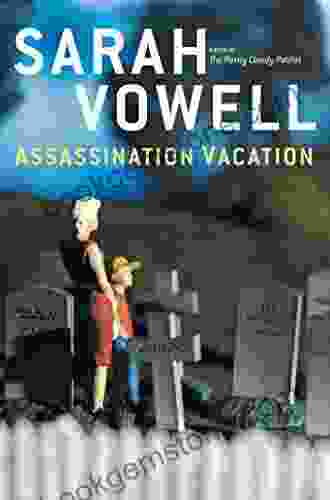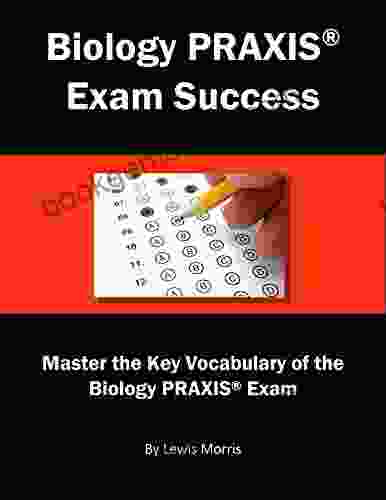Your Child's Developmental Ages and Stages: A Complete Guide from Birth to Adolescence

5 out of 5
| Language | : | English |
| File size | : | 493 KB |
| Text-to-Speech | : | Enabled |
| Screen Reader | : | Supported |
| Enhanced typesetting | : | Enabled |
| Word Wise | : | Enabled |
| Print length | : | 149 pages |
| Lending | : | Enabled |
As a parent, it's natural to be curious about your child's development. You want to know when they'll reach certain milestones, how to support their growth, and what to expect as they progress through different stages. This comprehensive guide will provide you with an in-depth overview of your child's developmental ages and stages from birth to adolescence, covering physical, cognitive, emotional, and social milestones.
Physical Development
Physical development refers to the growth and changes in your child's body. These changes include height, weight, motor skills, and coordination. Here's a general overview of physical development during different stages:
- Birth to 1 year: During this stage, your baby will experience rapid growth and development. They will triple their birth weight, grow in height, and develop new motor skills such as rolling over, sitting up, and crawling.
- 1 to 3 years: This stage is characterized by continued growth and the development of gross motor skills, such as walking, running, and jumping. Your child will also develop fine motor skills, such as grasping, scribbling, and playing with toys.
- 3 to 5 years: During this stage, your child's growth will slow down slightly. They will continue to develop their gross and fine motor skills, and will become more coordinated and independent. They may also start riding a tricycle or playing sports.
- 5 to 8 years: This stage is known as the "school-age" period. Your child will continue to grow and develop, but at a slower pace. They will develop their muscles and coordination, and become more active and energetic. They may also start participating in organized sports or activities.
- 8 to 11 years: This stage is known as the "pre-adolescence" period. Your child may experience a growth spurt and gain weight. They will also continue to develop their motor skills and coordination. Their physical development will begin to resemble that of an adult.
- 11 to 18 years: This stage is known as the "adolescence" period. Your child will experience significant physical changes, including puberty. They will grow in height and weight, and their bodies will mature. They may also develop acne and body odor.
Cognitive Development
Cognitive development refers to the development of your child's thinking skills, such as problem-solving, memory, language, and creativity. Here's a general overview of cognitive development during different stages:
- Birth to 1 year: During this stage, your baby will learn through their senses and experiences. They will start to recognize familiar faces and objects, and will begin to communicate through babbling.
- 1 to 3 years: This stage is known as the "toddler" period. Your child will begin to use language to communicate and will develop a vocabulary of several hundred words. They will also start to understand simple concepts and relationships.
- 3 to 5 years: During this stage, your child will continue to develop their language skills and will start to ask questions. They will also develop their imagination and creativity, and will enjoy playing pretend games.
- 5 to 8 years: This stage is known as the "school-age" period. Your child will develop their problem-solving skills and will start to understand more complex concepts. They will also develop their reading, writing, and math skills.
- 8 to 11 years: This stage is known as the "pre-adolescence" period. Your child will continue to develop their cognitive skills and will become more logical and analytical. They will also start to develop their own opinions and beliefs.
- 11 to 18 years: This stage is known as the "adolescence" period. Your child will experience significant cognitive changes, including the development of abstract thinking, critical thinking, and metacognition. They will also become more independent and self-reliant.
Emotional Development
Emotional development refers to the development of your child's ability to understand and manage their emotions. Here's a general overview of emotional development during different stages:
- Birth to 1 year: During this stage, your baby will express their emotions through crying, smiling, and other nonverbal cues. They will also start to develop basic emotions, such as joy, anger, and sadness.
- 1 to 3 years: This stage is known as the "toddler" period. Your child will begin to develop a sense of self and will start to express their emotions more verbally. They may also experience temper tantrums and other emotional outbursts.
- 3 to 5 years: During this stage, your child will continue to develop their emotional skills and will start to understand more complex emotions. They will also develop empathy and will be able to comfort others.
- 5 to 8 years: This stage is known as the "school-age" period. Your child will continue to develop their emotional regulation skills and will become more independent. They will also start to develop friendships and will be able to cooperate with others.
- 8 to 11 years: This stage is known as the "pre-adolescence" period. Your child may experience a range of emotions, including excitement, anxiety, and sadness. They may also start to withdraw from their family and spend more time with their friends.
- 11 to 18 years: This stage is known as the "adolescence" period. Your child will experience significant emotional changes, including the development of a stronger sense of self and identity. They may also experience mood swings and other emotional challenges.
Social Development
Social development refers to the development of your child's ability to interact with others. Here's a general overview of social development during different stages:
- Birth to 1 year: During this stage, your baby will begin to interact with others through eye contact, smiling, and babbling. They will also start to develop a sense of attachment to their caregivers.
- 1 to 3 years: This stage is known as the "toddler" period. Your child will begin to play with other children and will develop a sense of independence. They may also start to show signs of aggression or jealousy.
- 3 to 5 years: During this stage, your child will continue to develop their social skills and will start to cooperate with others. They will also develop a sense of empathy and will be able to comfort others.
- 5 to 8 years: This stage is known as the "school-age" period. Your child will continue to develop their social skills and will start to make friends. They will also develop a sense of responsibility and will be able to follow rules.
- 8 to 11 years: This stage is known as the "pre-adolescence" period. Your child may start to spend more time with their friends and less time with their family. They may also start to develop crushes and romantic relationships.
- 11 to 18 years: This stage is known as the "adolescence" period. Your child will experience significant social changes, including the development of a stronger sense of identity and independence. They may also start to experiment with different social groups and activities.
Supporting Your Child's Development
As your child progresses through different developmental stages, there are many things you can do to support their growth. Here are a few tips:
- Provide a safe and loving environment. Your child needs to feel loved and secure in order to develop properly.
- Talk to your child. Talk to your child about their day, their feelings, and their experiences. This will help them develop their language skills and their ability to communicate.
- Play with your child. Play is an
5 out of 5
| Language | : | English |
| File size | : | 493 KB |
| Text-to-Speech | : | Enabled |
| Screen Reader | : | Supported |
| Enhanced typesetting | : | Enabled |
| Word Wise | : | Enabled |
| Print length | : | 149 pages |
| Lending | : | Enabled |
Do you want to contribute by writing guest posts on this blog?
Please contact us and send us a resume of previous articles that you have written.
 Best Book
Best Book Page Flip
Page Flip Bookshelf
Bookshelf Literary loom
Literary loom Chapter
Chapter Bookish
Bookish PageTurner
PageTurner Bibliophile
Bibliophile Story
Story Inkwell
Inkwell Bookworm
Bookworm Labyrinth
Labyrinth Plot Twist
Plot Twist Prose
Prose Paperback
Paperback Storyteller
Storyteller Sanctuary
Sanctuary Fiction
Fiction Reading
Reading Chronicle
Chronicle Read
Read Philip Donlay
Philip Donlay John W Lundin
John W Lundin Gavin Francis
Gavin Francis Gina Wisker
Gina Wisker Grady Hendrix
Grady Hendrix Nadav Snir
Nadav Snir Tim Hannigan
Tim Hannigan Tania N Shah
Tania N Shah Luca Vargiu
Luca Vargiu Kim Heinbuch
Kim Heinbuch Cosmic Kids Publications
Cosmic Kids Publications Jeanie Buss
Jeanie Buss Mark Zegarelli
Mark Zegarelli Dr Hooelz
Dr Hooelz Lucille Recht Penner
Lucille Recht Penner Lisa Kleypas
Lisa Kleypas Carlos A Caggiani
Carlos A Caggiani S K Gupta
S K Gupta Kayla Chalko
Kayla Chalko Ron Siliko
Ron Siliko Georgios Papadakis
Georgios Papadakis Julia Ann Clayton
Julia Ann Clayton Helen Wenley
Helen Wenley Lance Pototschnik
Lance Pototschnik William Wadsworth
William Wadsworth Robert Finch
Robert Finch J R Klein
J R Klein Tim Bauerschmidt
Tim Bauerschmidt J Maarten Troost
J Maarten Troost James Cowan
James Cowan Rochelle Knight
Rochelle Knight Kanchan Suyash
Kanchan Suyash Kazim Ali
Kazim Ali Paul Johnson
Paul Johnson Harley Wylde
Harley Wylde Horace C A
Horace C A Mike Kraus
Mike Kraus C E Flores
C E Flores Neha Gupta
Neha Gupta Erin Trahan
Erin Trahan Sandra Dallas
Sandra Dallas Kaye Edwards
Kaye Edwards Kaplan Test Prep
Kaplan Test Prep One Edition Kindle Edition
One Edition Kindle Edition Len Airey
Len Airey Prasad Raju V V N R Pathapati
Prasad Raju V V N R Pathapati Moshe Ohayon
Moshe Ohayon Martin Woodward
Martin Woodward Mariah Laine Moyle
Mariah Laine Moyle Lonely Planet Kids
Lonely Planet Kids Mary Ann Hogan
Mary Ann Hogan Michel Roy
Michel Roy Pauline Harmange
Pauline Harmange Mike Chambers
Mike Chambers Christine Wilcox
Christine Wilcox Laura Lincoln Maitland
Laura Lincoln Maitland Richard Palmer
Richard Palmer John Howells
John Howells Con Coughlin
Con Coughlin Lynda Field
Lynda Field Skip Hollandsworth
Skip Hollandsworth Eugene C Toy
Eugene C Toy Smart Reads
Smart Reads John Hiker
John Hiker Edward Hoagland
Edward Hoagland Michele G Kunz
Michele G Kunz Andrew Hudgins
Andrew Hudgins Jay Kirk
Jay Kirk Stephen Haddelsey
Stephen Haddelsey Kevin Marx
Kevin Marx Darren Alff
Darren Alff Miles Martin
Miles Martin Stanley Vast
Stanley Vast J D Ware
J D Ware J R Haseloff
J R Haseloff Seth Abramson
Seth Abramson Insight Guides
Insight Guides Jen Beck Seymour
Jen Beck Seymour Trevanian
Trevanian Lucy Peet
Lucy Peet Julia Alvarez
Julia Alvarez Bruce Boudreau
Bruce Boudreau Jamie Jensen
Jamie Jensen Viki Winterton
Viki Winterton Bruce Hunt
Bruce Hunt Kira Salak
Kira Salak Balazs Csigi
Balazs Csigi Helen Dunn Frame
Helen Dunn Frame Jim Mancuso
Jim Mancuso Caitlin Doughty
Caitlin Doughty Ken Chaddock
Ken Chaddock Nick Smith
Nick Smith Jack Slater
Jack Slater Ashley Schmitt
Ashley Schmitt T A Williams
T A Williams Jonny Zucker
Jonny Zucker Narasimha Karumanchi
Narasimha Karumanchi Lloyd Richardson
Lloyd Richardson Jeffrey Alford
Jeffrey Alford Rusty Young
Rusty Young Maria Spantidi
Maria Spantidi John Rae
John Rae Scott Butler
Scott Butler Robert D Kaplan
Robert D Kaplan Luca Brambilla
Luca Brambilla Helene St James
Helene St James Robert N Rosen
Robert N Rosen Juliet Grames
Juliet Grames Cliff Seruntine
Cliff Seruntine Rajani Katta
Rajani Katta Margaret K Nydell
Margaret K Nydell Benjamin P Bowser
Benjamin P Bowser Lingo Mastery
Lingo Mastery John Murray
John Murray Language Guru
Language Guru General
General Yaa Gyasi
Yaa Gyasi Jearl Walker
Jearl Walker Warwick Trucker
Warwick Trucker Mark Dawson
Mark Dawson Kevin Biggar
Kevin Biggar Kathleen Norris
Kathleen Norris Lawrence Osborne
Lawrence Osborne Kindle Edition
Kindle Edition Approach Guides
Approach Guides Alexis Lipsitz Flippin
Alexis Lipsitz Flippin Matthew Simon
Matthew Simon Lonely Planet
Lonely Planet Nicholas Crowder
Nicholas Crowder Hilde Hoogenboom
Hilde Hoogenboom Cindi Myers
Cindi Myers Emily Kimelman
Emily Kimelman Nigel Cliff
Nigel Cliff Angela Stevens
Angela Stevens Wolfgang Daunicht
Wolfgang Daunicht Emily Colin
Emily Colin Andy Kirkpatrick
Andy Kirkpatrick Seyyed Hossein Nasr
Seyyed Hossein Nasr Quick Reads
Quick Reads Jean Vives
Jean Vives Zip Reads
Zip Reads Lewis Morris
Lewis Morris Susan Weese
Susan Weese Kevin Shea
Kevin Shea Christopher D Nolan
Christopher D Nolan Fodor S Travel Guides
Fodor S Travel Guides Shay Spivey
Shay Spivey Julian Stern
Julian Stern Rosita Forbes
Rosita Forbes Redhen Family
Redhen Family Bob Shepton
Bob Shepton Carla Mooney
Carla Mooney Manny Serrato
Manny Serrato Pamela K Lamb
Pamela K Lamb L Waxy Gregoire
L Waxy Gregoire Triumphant Test Prep
Triumphant Test Prep Michelle Lee
Michelle Lee Dr John Hockey
Dr John Hockey Disha Experts
Disha Experts Fiona Gibson
Fiona Gibson Roy Fisher
Roy Fisher Lesley Jane Eales Reynolds
Lesley Jane Eales Reynolds Rich Polanco
Rich Polanco Brian Mcfarlane
Brian Mcfarlane Tony Mendoza
Tony Mendoza Matt Racine
Matt Racine Joshua Armstrong
Joshua Armstrong Justin Goldman
Justin Goldman Trivium Test Prep
Trivium Test Prep Christophe P Yerling Ph D
Christophe P Yerling Ph D Wizer
Wizer Terry Frei
Terry Frei Evie Litton
Evie Litton Preston George Pysh
Preston George Pysh Richard Bak
Richard Bak William Shakespeare
William Shakespeare John Gilstrap
John Gilstrap Peterson S
Peterson S Janice K Ledford
Janice K Ledford Stuart Woods
Stuart Woods Terry Pratchett
Terry Pratchett Janet Chapple
Janet Chapple Francis J Buckley
Francis J Buckley Zigzag English
Zigzag English Rick Steves
Rick Steves Savage Greenboro
Savage Greenboro Aminta Arrington
Aminta Arrington Jane Bottomley
Jane Bottomley Rico Austin
Rico Austin Brooks Fiesinger
Brooks Fiesinger Tessa Dare
Tessa Dare Kenneth Oppel
Kenneth Oppel Gerald Hausman
Gerald Hausman Laura Lee Smith
Laura Lee Smith Tiara R Brown
Tiara R Brown Vincent Chidindu Asogwa
Vincent Chidindu Asogwa Katherine Nouri Hughes
Katherine Nouri Hughes Osasumwen Asoro
Osasumwen Asoro Steve Warner
Steve Warner Khalid Khashoggi
Khalid Khashoggi Edna Fernandes
Edna Fernandes Emt Basic Exam Prep Team
Emt Basic Exam Prep Team Marie Cirano
Marie Cirano Sylvain Tesson
Sylvain Tesson Khaled Hosseini
Khaled Hosseini Michele Shriver
Michele Shriver Edwyn Forest
Edwyn Forest Bob Duff
Bob Duff Hugo Banzer Suarez
Hugo Banzer Suarez Simon Richmond
Simon Richmond Anita Landoll
Anita Landoll Joseph Robertia
Joseph Robertia Joseph Toone
Joseph Toone W E B Griffin
W E B Griffin Jay H Lefkowitch
Jay H Lefkowitch Ingrid P Wicken
Ingrid P Wicken Tracy Johnston
Tracy Johnston Bright Summaries
Bright Summaries Tim Notier
Tim Notier Zanna Sloniowska
Zanna Sloniowska Nicholas J Cotsonika
Nicholas J Cotsonika William W Johnstone
William W Johnstone Peter Mansfield
Peter Mansfield Mauricio Fau
Mauricio Fau Ibl Press
Ibl Press Joe Pelletier
Joe Pelletier Stephan Orth
Stephan Orth Noor De Olinad
Noor De Olinad Kerry Karram
Kerry Karram Dr Lew Deitch
Dr Lew Deitch Chic Scott
Chic Scott Brien Foerster
Brien Foerster Nielson Phu
Nielson Phu Sara Wheeler
Sara Wheeler Bob Mckenzie
Bob Mckenzie William Ma
William Ma Michael Renshaw
Michael Renshaw Lally Brown
Lally Brown Tony Daffern
Tony Daffern Ged Wilmot
Ged Wilmot Simon Turney
Simon Turney Rhonda Leeman Taylor
Rhonda Leeman Taylor Edulink Gmbh
Edulink Gmbh Hugh Sinclair
Hugh Sinclair Michelle Larkin
Michelle Larkin W M Raebeck
W M Raebeck Magnus D Jango
Magnus D Jango Joeanna Rebello Fernandes
Joeanna Rebello Fernandes Garry J Shaw
Garry J Shaw Nikki Nichols
Nikki Nichols Nick Adams
Nick Adams Nicholas Gallo
Nicholas Gallo Educational Testing Service
Educational Testing Service Tao Le
Tao Le John Seibert Farnsworth
John Seibert Farnsworth Fridtjof Nansen
Fridtjof Nansen Elaine Sciolino
Elaine Sciolino Steven Cowie
Steven Cowie Manik Sheoran
Manik Sheoran Brandon Royal
Brandon Royal Pat Thomson
Pat Thomson Dixie Dansercoer
Dixie Dansercoer Snap Summaries
Snap Summaries Marie Benedict
Marie Benedict John Germov
John Germov Stan Skrabut
Stan Skrabut Kate Williams
Kate Williams Fred Ray Lybrand
Fred Ray Lybrand Laura Ben David
Laura Ben David Gregg Hurwitz
Gregg Hurwitz Sigurd F Olson
Sigurd F Olson Robert Cargill
Robert Cargill David J Rothman
David J Rothman Cyndi Kinney
Cyndi Kinney Paul Murton
Paul Murton Mark Mclaughlin
Mark Mclaughlin Elena Leman
Elena Leman Vince Kotchian
Vince Kotchian Edward R Lachapelle
Edward R Lachapelle Hicham And Mohamed Ibnalkadi
Hicham And Mohamed Ibnalkadi Randy Wayne White
Randy Wayne White Kristine Ellingson
Kristine Ellingson Leslie Davenport
Leslie Davenport Nachole Johnson
Nachole Johnson Michael Powell
Michael Powell Rachel Russ
Rachel Russ Maggie Ryan
Maggie Ryan Julia Quinn
Julia Quinn Isee Exam Preparation Experts
Isee Exam Preparation Experts Lawrence Durrell
Lawrence Durrell Hannah Tyson
Hannah Tyson Karsten Heuer
Karsten Heuer Gil Martin
Gil Martin Lucy Coleman
Lucy Coleman John Hemming
John Hemming Rory Stewart
Rory Stewart Ian Tuhovsky
Ian Tuhovsky Paul Ames
Paul Ames Douglas Preston
Douglas Preston Sean Dietrich
Sean Dietrich Boye Lafayette De Mente
Boye Lafayette De Mente Ben Tall
Ben Tall Michael Corayer
Michael Corayer Robert Crais
Robert Crais Jared Derksen
Jared Derksen Sigrid Fry Revere
Sigrid Fry Revere Dk
Dk Bob Smale
Bob Smale Mitt Romney
Mitt Romney Saroo Brierley
Saroo Brierley Nisha Garg
Nisha Garg Shanta Kumar
Shanta Kumar Nick Angelis
Nick Angelis Amy Wilentz
Amy Wilentz Joseph Phillips
Joseph Phillips Rob Pate
Rob Pate John Walters
John Walters Ana Sortun
Ana Sortun Print Replica Kindle Edition
Print Replica Kindle Edition Russell Maddicks
Russell Maddicks Jeff Hay
Jeff Hay Thomas E Johnson
Thomas E Johnson Sterling Test Prep
Sterling Test Prep Fethi Mansouri
Fethi Mansouri Lorelou Desjardins
Lorelou Desjardins Narendra Kumar V
Narendra Kumar V Robert B Parker
Robert B Parker Bookrags Com
Bookrags Com Eric Bodnar
Eric Bodnar Felicie Williams
Felicie Williams Melody Carlson
Melody Carlson Janet Evans
Janet Evans Rebecca E F Barone
Rebecca E F Barone John Henderson
John Henderson John Scherber
John Scherber Prepvantage
Prepvantage Konstantinos Mylonas
Konstantinos Mylonas Jason Dean
Jason Dean Jon A Archambault
Jon A Archambault G Neri
G Neri Simon Hart
Simon Hart Steve Schwartz
Steve Schwartz Greg Gilhooly
Greg Gilhooly Markes E Johnson
Markes E Johnson Ted Chiang
Ted Chiang Dr Ray Makar
Dr Ray Makar Ross Blankenship
Ross Blankenship Laura Albritton
Laura Albritton C F Crist
C F Crist Wickaninnish Inn
Wickaninnish Inn Kim Heldman
Kim Heldman Patrick O Sullivan
Patrick O Sullivan Robert Collins
Robert Collins Ted Kulfan
Ted Kulfan Wendy C Crone
Wendy C Crone Ray Walker
Ray Walker Alina Adams
Alina Adams David Gordon
David Gordon Ian C Friedman
Ian C Friedman Luisa Gastambide
Luisa Gastambide Manfred Theisen
Manfred Theisen Sophie Fuggle
Sophie Fuggle Jenny Mackay
Jenny Mackay Douglas J Gould
Douglas J Gould Illustrated Edition Kindle Edition
Illustrated Edition Kindle Edition Anna Curran
Anna Curran Raquel Baccetto
Raquel Baccetto John Keahey
John Keahey Andrew Hempstead
Andrew Hempstead Tim Brown
Tim Brown Monica Sorrenson
Monica Sorrenson Paul Watson
Paul Watson Various
Various William Pitts
William Pitts United States Government Us Army
United States Government Us Army Laura Peyton Roberts
Laura Peyton Roberts Alan Charlesworth
Alan Charlesworth Maria Montessori
Maria Montessori Ilona Andrews
Ilona Andrews George Orwell
George Orwell Ben Malisow
Ben Malisow Rupika Raj
Rupika Raj Kristopher Martel
Kristopher Martel Meghan Mccarthy
Meghan Mccarthy Morgan Stafford
Morgan Stafford Joshua Jelly Schapiro
Joshua Jelly Schapiro Tim Dowley
Tim Dowley Genius Reads
Genius Reads Ross Bonander
Ross Bonander Joel J Lerner
Joel J Lerner Wayne Johnston
Wayne Johnston Richard Henry Dana
Richard Henry Dana Richard Kadrey
Richard Kadrey Rex Nelson
Rex Nelson Mark Lee
Mark Lee Pip Williams
Pip Williams Eric Engle
Eric Engle Neil Chelton
Neil Chelton James Cave
James Cave Tony Horwitz
Tony Horwitz Sport Hour
Sport Hour April Vahle Hamel
April Vahle Hamel Mark Greaney
Mark Greaney Dr Jyuthica Laghate
Dr Jyuthica Laghate A R Vasishtha
A R Vasishtha Keri Bloomfield
Keri Bloomfield Andy Russell
Andy Russell 50minutes Com
50minutes Com Alex Hibbert
Alex Hibbert Greg Breining
Greg Breining Um A Yube
Um A Yube Wayne J Lutz
Wayne J Lutz Deanna Raybourn
Deanna Raybourn Rod Kulbach
Rod Kulbach Jane Moore
Jane Moore Sharon A Wynne
Sharon A Wynne Xavier Marie Bonnot
Xavier Marie Bonnot Stephen John
Stephen John John Morrison
John Morrison Nicolas Rodak
Nicolas Rodak Jason Hogan
Jason Hogan Elizabeth Hay
Elizabeth Hay Doug Gaskill
Doug Gaskill Proprietary Edition Kindle Edition
Proprietary Edition Kindle Edition Eric Newman
Eric Newman Caryn Boddie
Caryn Boddie Helene Martensson
Helene Martensson John Merriam
John Merriam Baby Professor
Baby Professor Russell Streeter
Russell Streeter Nicholas Bjorn
Nicholas Bjorn Philip Jackson
Philip Jackson Frosty Wooldridge
Frosty Wooldridge Jocelyn Jane Cox
Jocelyn Jane Cox Topher Donahue
Topher Donahue Smart Edition
Smart Edition Stephen Ausherman
Stephen Ausherman Anuj Tikku
Anuj Tikku Rebecca Hill
Rebecca Hill Garry Burnett
Garry Burnett Jackson Carter
Jackson Carter Sarah Vowell
Sarah Vowell Kristin Hannah
Kristin Hannah David Archer
David Archer Mark Rosenman
Mark Rosenman Kathleen Kirkland
Kathleen Kirkland Jesse M Ehrenfeld
Jesse M Ehrenfeld Leo Books
Leo Books L T Ryan
L T Ryan Supersummary
Supersummary Grace Barrington Shaw
Grace Barrington Shaw Dan Fullerton
Dan Fullerton Katrina Lawrence
Katrina Lawrence Huma Filo
Huma Filo Michael Vlessides
Michael Vlessides Megan Poore
Megan Poore Louis L Amour
Louis L Amour Jeremy K Davis
Jeremy K Davis Steven W Dulan
Steven W Dulan Fatime Losonci
Fatime Losonci Businessnews Publishing
Businessnews Publishing Meike Winnemuth
Meike Winnemuth R Raman
R Raman Wilfred M Mcclay
Wilfred M Mcclay Patricia Briggs
Patricia Briggs Colson Whitehead
Colson Whitehead Ken Griffey Jr
Ken Griffey Jr
Light bulbAdvertise smarter! Our strategic ad space ensures maximum exposure. Reserve your spot today!

 Chase MorrisExhalation: Stories by Ted Chiang - An Exploration of Human Nature and the...
Chase MorrisExhalation: Stories by Ted Chiang - An Exploration of Human Nature and the... Ralph EllisonFollow ·9.6k
Ralph EllisonFollow ·9.6k Brian WestFollow ·16.9k
Brian WestFollow ·16.9k Robert BrowningFollow ·3.3k
Robert BrowningFollow ·3.3k Dan HendersonFollow ·5.4k
Dan HendersonFollow ·5.4k Chandler WardFollow ·2.8k
Chandler WardFollow ·2.8k Kendall WardFollow ·15.3k
Kendall WardFollow ·15.3k Edgar Allan PoeFollow ·12.4k
Edgar Allan PoeFollow ·12.4k Hugo CoxFollow ·4.5k
Hugo CoxFollow ·4.5k

 Scott Parker
Scott ParkerGerman Men Sit Down To Pee And Other Insights Into German...
German culture is...

 Tyler Nelson
Tyler NelsonHigh School: A Comprehensive Guide to Surviving the...
High school can...

 Dan Bell
Dan BellUnlocking Success in Military Careers: A Comprehensive...
Embarking on a military career is a...

 Leslie Carter
Leslie CarterAn American Soldier's Lifelong Journey with Racism: From...
In the annals of...

 Aldous Huxley
Aldous HuxleyFirefighters: Guardians of Our Communities and Exam Study...
Firefighters, the valiant sentinels of...

 Jason Reed
Jason ReedAn Unforgettable Literary Journey: Exploring...
: A Trip Down History's Darkest...
5 out of 5
| Language | : | English |
| File size | : | 493 KB |
| Text-to-Speech | : | Enabled |
| Screen Reader | : | Supported |
| Enhanced typesetting | : | Enabled |
| Word Wise | : | Enabled |
| Print length | : | 149 pages |
| Lending | : | Enabled |










